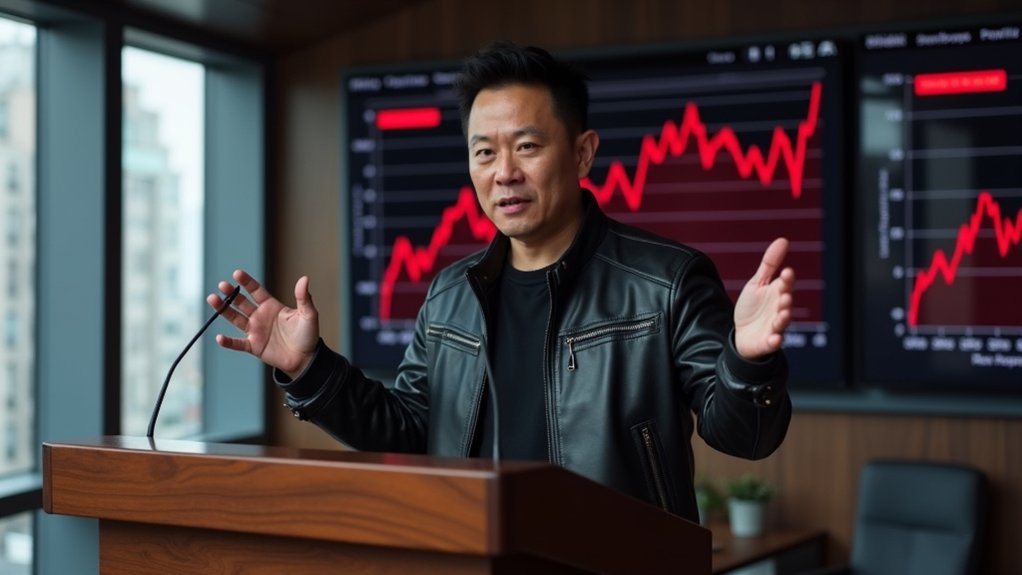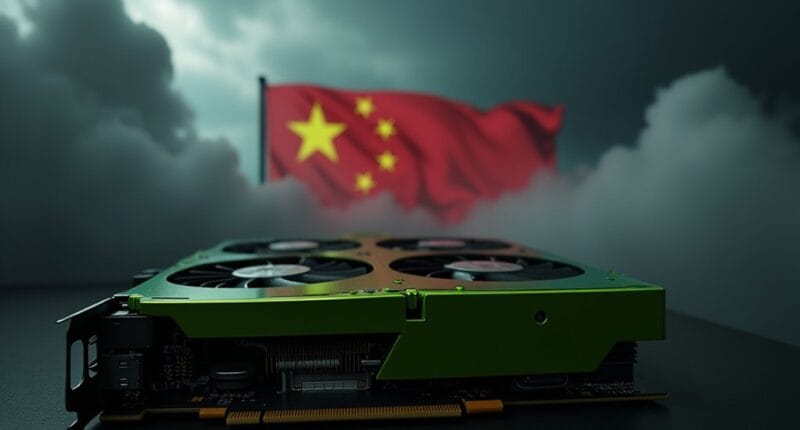Nvidia CEO Jensen Huang isn’t mincing words about the US chip ban – it’s a spectacular failure that handed China a $50 billion AI market on a silver platter. His company’s market share in China plummeted from 95% to 50%, with projected losses of $10.5 billion by 2026. The restrictions backfired spectacularly, pushing Chinese tech giants to develop their own chips while costing US companies billions. The real kicker? China’s domestic chip industry is now stronger than ever.

While Nvidia has long dominated the global AI chip market, CEO Jensen Huang isn’t mincing words about recent US export restrictions to China. The tech leader has blasted the Biden administration’s chip ban as “precisely wrong” and “a failure,” watching helplessly as his company’s market share in China plummeted from 95% to 50% in just four years.
The numbers are staggering. Nvidia faces inventory write-downs of up to $5.5 billion and projects missing out on $10.5 billion in revenue by early 2026. That’s a lot of zeros. The company is fundamentally being forced to wave goodbye to China’s $50 billion AI chip market – not exactly small change.
Huang’s frustration is palpable, and maybe he’s got a point. The ban, which includes Nvidia’s China-specific H20 chip, has achieved precisely what it aimed to prevent: strengthening Chinese AI capabilities. Rather than limiting China’s tech advancement, the restrictions have sparked a massive push for domestic chip development. Talk about backfiring. The U.S. government stands to lose approximately tax revenue of $3 billion due to these restrictions.
In trying to contain China’s AI ambitions, US export controls inadvertently accelerated their domestic chip development – a classic self-defeating strategy.
Chinese tech giants aren’t sitting around moping. Tencent and Alibaba have already pivoted to local suppliers, while Huawei is ramping up its R&D efforts. Beijing is throwing money at domestic chip development like there’s no tomorrow. The irony? These companies might end up competing with Nvidia globally.
The impact extends beyond just dollars and cents. Nvidia’s CUDA software ecosystem, long the industry standard, risks losing its grip on the market. The latest financial reports show the company achieved $44.06 billion in quarterly sales, marking a substantial 69.2% increase from the previous year. The global AI landscape is fragmenting, and US technological leadership might be eroding faster than a sandcastle at high tide.
For Nvidia, which counted on China for 14% of its revenue, the situation is particularly painful. Huang warns that China will develop AI regardless – the only question is whether it’ll run on American platforms.
Meanwhile, US lawmakers continue debating export controls, seemingly deaf to the industry’s concerns. Sometimes, trying to win means losing even bigger.





